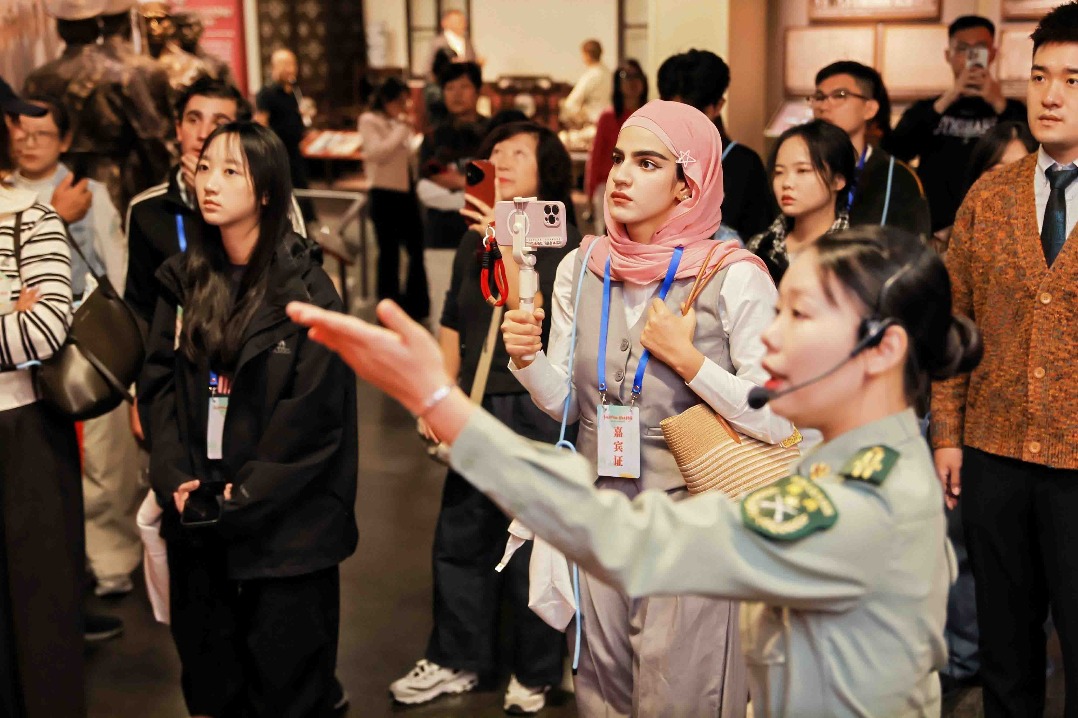China-led telescope project secures global partners for cutting-edge cosmic research

HANGZHOU -- A revolutionary, China-led telescope project has secured two further international partnerships, accelerating humanity's quest to witness and understand the universe's most cataclysmic events.
Brazil and South Africa became the latest members of the Global Open Transient Telescope Array (GOTTA) project -- a UNESCO-endorsed global initiative spearheaded by China's National Astronomical Observatories (NAOC) -- during the AI-Empowered Astronomy for Open Science conference, which concluded on Wednesday in the eastern Chinese tech hub of Hangzhou.
GOTTA will deploy a network of over 100 wide-angle optical telescopes around the world to capture fleeting cosmic phenomena like supernovae and gamma-ray bursts in a critical early stage -- a golden window for astronomical discovery, the capture of which requires coordinated global observation.
This project has the promise to revolutionize our understanding of extreme gravitational forces and the evolution of the universe, said Liu Jifeng, director of NAOC.
Astronomical institutions in Brazil and South Africa, both of which are located in the Southern Hemisphere, will collaborate with Chinese counterparts such as NAOC and Zhejiang Lab to build telescopes and advance software development, data mirroring and observation.
To date, the GOTTA project has drawn the participation of researchers from almost a dozen countries, with more expressing interest in joining.
"Astronomy is a wonderful area to build the skills of innovation and creativity. I hope to collaborate with Zhejiang Lab on dark matter detectors," John Baruch, a professor at Leeds Beckett University in the United Kingdom, told Xinhua on the sidelines of the conference.
AI-DRIVEN COLLABORATION
GOTTA's groundbreaking distinction lies in its integration of AI, big data and distributed computing, fostering cross-disciplinary collaboration to establish a global framework for the sharing of data, algorithms and models.
China is working to foster global cooperation on artificial intelligence for astronomical research.
The conference was hosted by NAOC and Zhejiang Lab, which were the two institutions to develop AstroOne, a foundational AI model for astronomy that is now open to researchers worldwide.
AstroOne leverages astrophysical knowledge to perform advanced scientific reasoning and data analysis tasks. It also enables intelligent, coordinated telescope observation through its embodied AI system.
The three-day conference was attended by over 240 experts, scholars and young researchers from 22 countries and regions, including Spain, South Africa, India, the United Kingdom, Russia, Chile and Brazil.
- Gen-Z Taiwan volunteer joins Minqin's desert afforestation efforts
- Over 20 Gen Z foreign guests to explore Baise city in Guangxi
- Japanese prime minister criticized over provocative Taiwan remarks
- Beijing's air quality improves further
- Lancang-Mekong countries vow to target telecom and cyber fraud
- China slams Japanese leader for refusing to withdraw her remarks




































